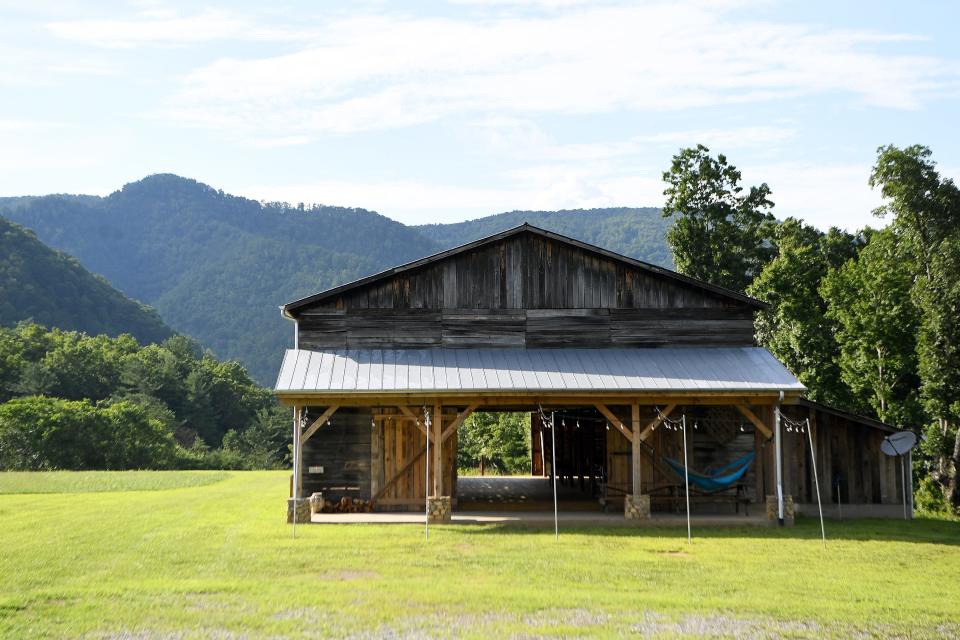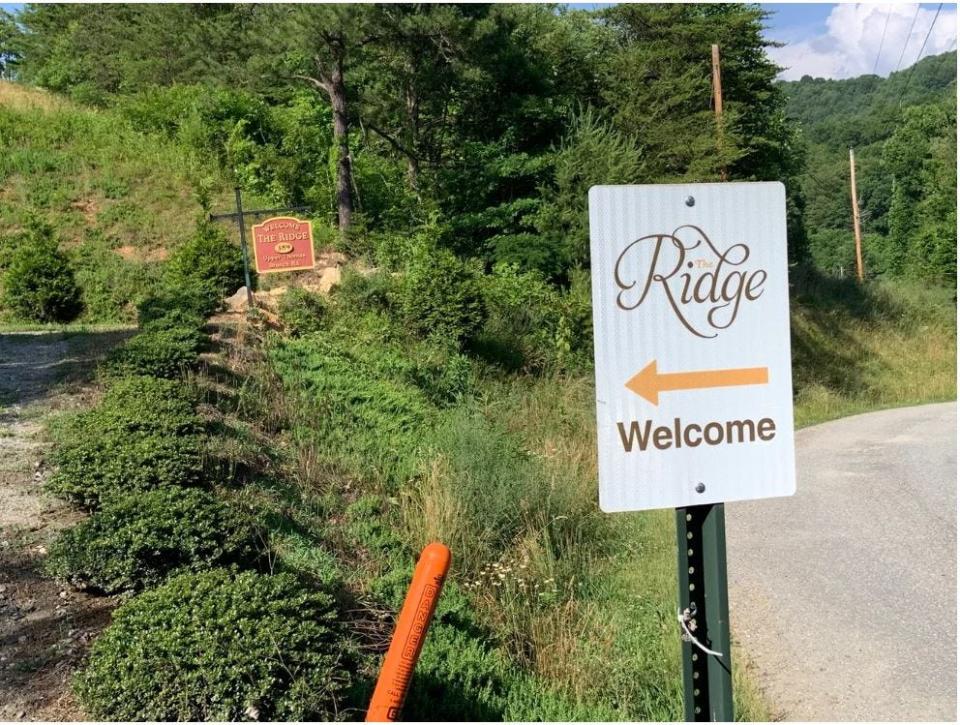Board works on rules, language to help event venues, neighbors coexist in Madison
MARSHALL - Madison County is at a tipping point that could make or break the future course it sets for potential commercial development.
With the county's extended commercial use moratorium set to expire at the end of April after numerous residents complained of noise at event venues in the county, the Madison Planning Board met March 7 to discuss proposed Land Use Ordinance language additions meant to shore up language to protect against future infractions from such venues.
The board, the county's land use attorney John Noor and Development Services Director Brad Guth discussed a draft of the Madison County Land Use Ordinance that included numerous additions to the ordinance.
The board moved to table a vote on the ordinance changes and will vote on whether to approve the changes and submit the recommendations to the Board of Commissioners in its March 21 meeting.
"The only issues that we are trying to address is that the Board (of Commissioners) wanted to get (these additions approved) before the moratorium expires at the end of April," Guth said. "So, we could do it at our next meeting, and you'd still be able to get it in in that window."
The draft ordinance arises from the work of a focus group formed in July 2022 composed of Guth, Noor, former Zoning Administrator Terrey Dolan and former Commissioner Craig Goforth, as well as current BOC Vice Chair Michael Garrison.
The work group was formed to establish rules and guidelines for these event venues following the six-month "commercial assembly/assembly hall" moratorium established by the county commissioners after receiving numerous complaints from neighbors of wedding venues in Hot Springs and Marshall.
The moratorium was extended an additional four months in December and is set to expire April 28.
The first such Land Use Ordinance proposed addition is to Section 2.2, relating to definitions of terms.
In place of "assembly hall," the draft proposes the term "special event facility," which is defined as "a facility used to accommodate functions including, but not limited to, banquets, weddings, celebrations, dinners or other group events."
According to the draft, church and religious institutions are not included in this definition.
In the draft, a "facility" is defined as "a structure or place which is built, installed or established to serve a particular purpose."
"The purpose of this section is to establish a set of regulations applicable to special events facilities," Guth read from the draft. "These regulations are in addition to all other provisions of this ordinance. In adopting these standards, Madison County finds that special event facilities have the potential to be incompatible with surrounding residential uses thereby having the potential for a deleterious effect on adjacent residents.
"Special regulations for special event facilities are necessary to ensure they will be compatible with surrounding residential uses and will not act to harm or alter the neighborhoods they are located in."
The draft also adds language to Section 8.10.2, relating to permits.
"Any person, firm or corporation wanting to construct or expand a Special Event Facility shall first submit an application and site development plan to the Madison County Zoning Office," the draft reads.
After the application is complete, the zoning office will then forward the application to the Madison County Board of Adjustment for a special use hearing,
Section 8.10.3 of the draft deals with the requirements for special event facilities applications and site development plans.
There are 14 requirements for the special events facilities applications. They include:
A narrative describing the proposed special event facility, including an overview of the project with specific hours of operation and the expected noise impact (including volume.
A site plan showing the proposed location, height and dimensions of all structures, and the location of any residence within 100 yards of the property line of the lot.
Elevation drawings of the proposed buildings and material list to show the structural details of the building.
Landscaping buffers, as the facility and area associated with the use shall be screened from adjoining properties by a buffer strip.
Use separation, as all equipment, structures and parking shall be a minimum of 30 feet from all property lines and 100 feet from any occupied residential structure on adjacent properties.
The total floor area of any special event facility used as a building in a residential zone shall contain no more than 7,500 square feet of gross floor area. Also, there shall be no more than one special event facility structure per 5 acres on residentially zoned properties.
All special events facilities shall adhere to the Madison County Noise Ordinance, adopted in 2003.
The facility shall meet all state building and environmental health codes for sewage disposal and water supply.
Facilities shall comply with the Land Use Ordinance parking requirements.
No fireworks are permitted.
All facilities shall designate a local contact person who shall provide their contact information, including email and phone number for business and emergency contact.
Additionally, all special events facilities currently in operation may continue to operate during an "amortization" period of one year without being subject to the terms and conditions of these regulations.
"Essentially, we're giving everybody who already exists and fits this definition a year to get into compliance," Noor said. "It doesn't mean that everybody who's there has to shut their doors right now. It means you have a year to fit all of these terms, and essentially get your house in order to meet the new requirements.
"However, the one thing that will automatically kick in for those who already exist is you've got to comply with the noise ordinance, and if you don't, we get to use our enforcement powers regarding the noise ordinance immediately."
The draft also stipulates that if a special event facility is cited for violating the noise ordinance more than once within a six-month period, the special use permit will be terminated and the use will be discontinued.
"The noise ordinance is also being updated in conjunction with the moratorium work group," Guth said.
According to Noor, the noise ordinance was last updated in 2003 and "is pretty outdated."
Should an existing special event facility be found in noncompliance, Guth would be in charge of enforcing the noise ordinance, Noor said.
"These are intended to be very strong violation provisions, meaning if you violate your permit, or if you violate 8.10, you get a notice of violation," Noor said. "You either appeal that and deal with it with the Board of Adjustment, or you accept it. That notice of violation is going to trigger a problem for you on your permit, and you would have to stop operating as a result of that violation."
According to Guth, a festival grounds would be considered a special event facility.
Guth estimated there are 11 or 12 special event facilities in the county.
"We'll have to do some advertising and make sure that people are aware that they have to come into compliance," Guth said.
Existing special event facilities will need to reapply for special use permits within one year.

Feedback from board members, residents
Board Chair Jered Silver asked Guth if he felt the draft provisions would jeopardize the existing special event facilities' business.
"That was not the intent of the moratorium work group, was to shut anybody down," Guth said. "The intent was to make sure that they do not conflict with the other land uses in the vicinity of their facility."
Noor said the provisions could protect the Board of Adjustment in assessing whether the special event facilities will not be impacting the health, welfare or value of neighboring properties.
"It's essentially on the applicant to come in and say, 'Here's how we are going to make sure that we are not violating the noise ordinance and that we are complying with the rest of the Land Use Ordinance."
Still, Silver said he worried that businesses that have been in compliance with the county's codes and regulations for years may now be jeopardized.
"What I wouldn't think was reasonable is if I spent a ton of money in the last five years building a business, and I followed the rules up until this point, then all of a sudden this was adopted and it's going to shut me down, and I'm in the red," Silver said. "There are a lot of businesses that don't make a lot of money until their fifth or sixth or seventh year."

One of the event venues embroiled in the noise pollution controversy is The Ridge in Marshall, owned and operated by Marta Bodenhorst, who appeared before the planning board March 7 for public comments.
"These proposed guidelines is setting myself and my established business up for failure," Bodenhorst said. "Basically, what is being proposed here, all it takes is for a neighbor like Bodie Evans to call (and complain). It is unfair. I'm here to follow the guidelines of what is being proposed. We employ people from Madison County. We give jobs to the kids of our neighbors, and I have asked them, 'Do you hear the sound of the music,' and they say, 'No.'"
Evans also addressed the board, stating that he did not want to shut Bodenhorst's business down, but simply wanted her to bring the noise down.
"She has built within 50 feet of my property line," Evans said. "Her parking lot is right against my property. I don't want to shut her down. I want to shut her up. I don't want you to pass something where she has to tear part of her stuff out.
"If people aren't deaf when they go in there, they are when they come out. I don't want to cost her money. I don't want to shut her down. I want her to be a neighbor, like I've tried to be to her, not to pat myself on the back."
Another resident appeared before the board representing an undisclosed vacation rental property.
"One of my concerns is, with a lot of the stuff that goes on in the meetings, is the county's going to get a reputation of being anti-business, and that's going to keep business away," the resident said. "The county is changing, whether you like it or not. So, you can try and manage how much change, and some of the change. But we live in the United States of America, and people are free to move and buy and invest.
"I agree with the noise ordinance stuff. There's a limit. But, you've got to be careful, especially up here in the mountains. When I talk to one of my neighbors - he has an event every now and then - people are at a campsite just talking, and he's a half mile away and can hear their conversation. How are you going to realistically say that they're in or out of the noise ordinance when you can hear a conversation all the way across the valley?"
The Madison County Planning Board will meet March 21 at 6:30 p.m. at the Madison County Library System's Marshall campus, located at 1335 N Main St. in Marshall.
This article originally appeared on Asheville Citizen Times: Madison board to mull ordinance changes as event venue ban nears end

